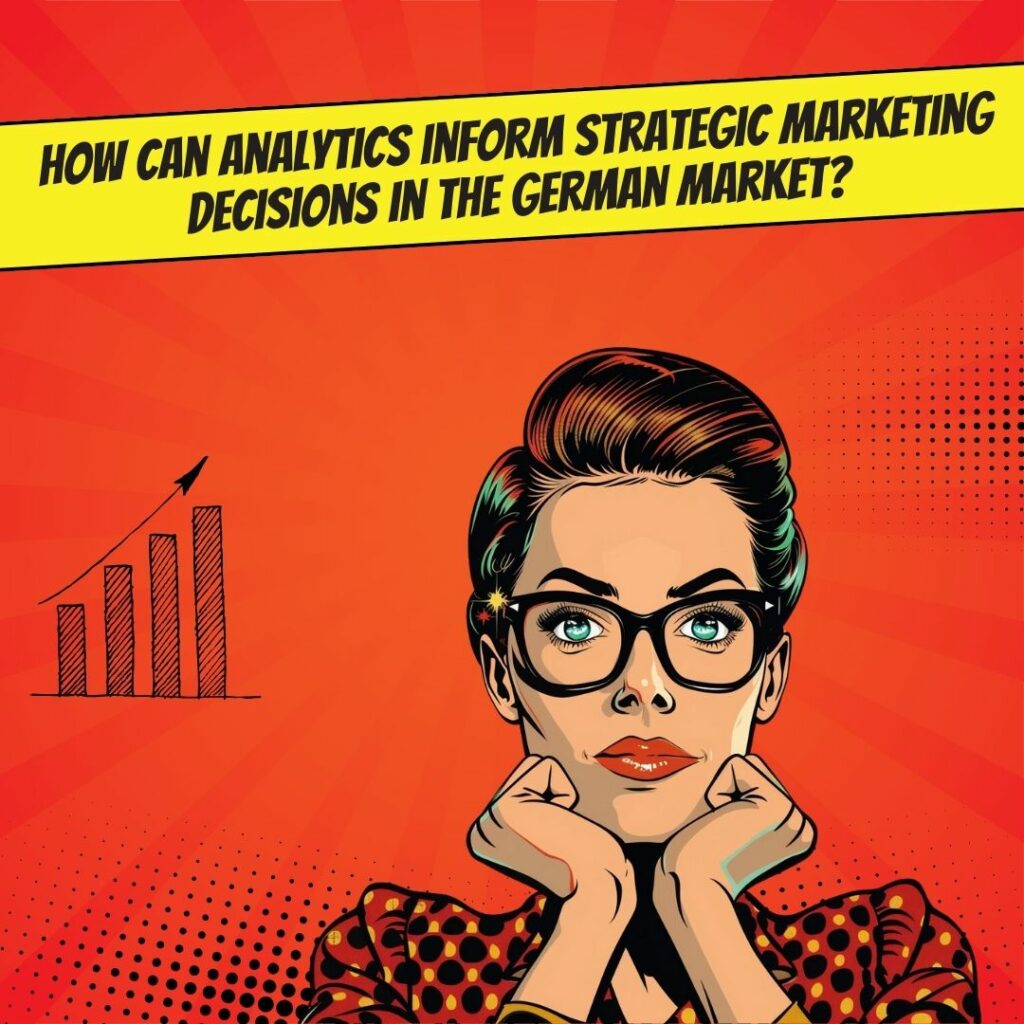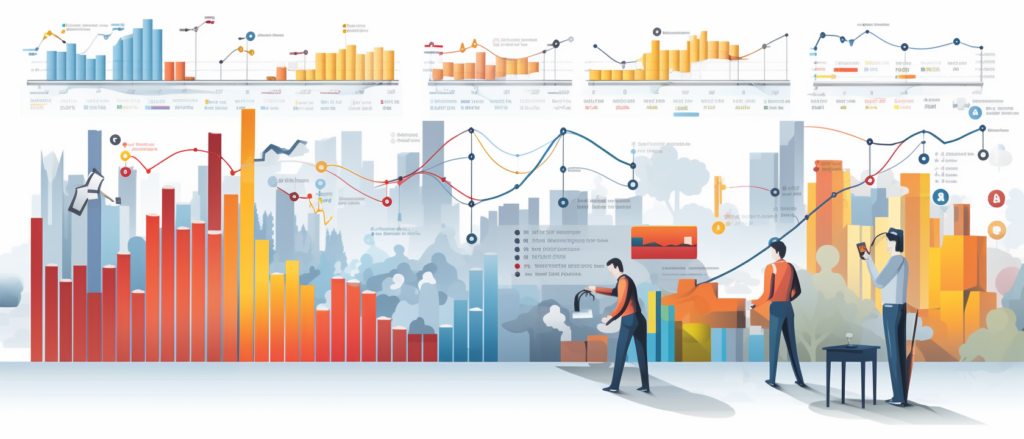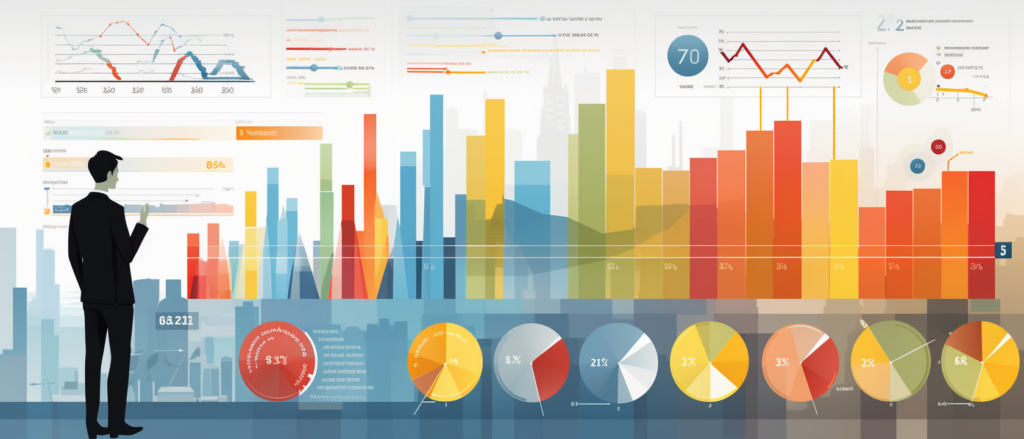Key Takeaways
✅ Data-driven marketing in Germany isn't just a trend; it's the lifeblood of competition. Tap into customer insights by gathering and analyzing data. This isn't about graphs and numbers—it's about understanding real people to stir up campaigns that really resonate.
✅ Everyone wants to feel special, right? Personalization in marketing isn’t just nice to have—it’s what German customers expect. Imagine tailoring your message so well that customers feel like you're talking just to them. That’s the power of analytics in your hands.
✅ Now, let's talk about the elephant in the room—privacy. Germany's strict on data protection, and for a good reason. But don't sweat it; playing by the rules with GDPR can actually win you more loyal friends than you think.

Introduction
Ever feel like you’re navigating a maze when it comes to marketing in Germany? You're not alone. This article will arm you with a data compass that points straight to success. Let's embark on a journey to demystify German consumer behavior, and I'll even throw in some nuggets on navigating data privacy laws.
The German market is unique – sure, you've heard that before. But what does it mean for you? Think cultural quirks, varying tastes, and expectations that could twist your marketing plan into a pretzel if you're not careful. Don’t just venture into the unknown—let’s chart the course using data as our guide.
Data collection and management – sounds dry? It's actually your secret sauce—how else are you going to whip up campaigns that stick? We’ll cover everything from the nuts and bolts of where to get your data to keeping it clean and ready for action. Next up, we’ll talk tools in analytics tools and techniques. Are you team #MachineLearning, or do you swear by predictive analytics? No matter your style, there’s a toolkit waiting for you to conquer the German market scene with an edge sharper than a German knife.
Top Statistics
| Statistic | Insight |
|---|---|
| Market Value Growth: Expected to reach €2.3 billion in 2021, a 10.2% increase from 2020. (Source: Statista) | This growth in market value is a clear sign that data analytics and business intelligence are not just buzzwords but actual drivers for business growth in Germany. |
| Increase in Investment: 70% of German companies are planning to increase their investments in data analytics in the next three years. (Source: McKinsey & Company) | This commitment from companies to invest more heavily in analytics signals a strategic move to make data-driven decisions the backbone of their business strategy. |
| Social Media Usage: 77.2% of internet users in Germany are expected to use social media in 2021. (Source: eMarketer) | With such a high percentage of internet users on social media, companies have a golden opportunity to engage with a vast and diversified audience for strategic marketing. |
| Big Data Market Growth: Predicted to grow at a CAGR of 11.2% from 2020 to 2024. (Source: IDC) | The expected compound annual growth rate tells us that the market is ripe for innovations in big data, making it an indispensable part of companies' toolbox for understanding markets and consumers. |
| AI and Machine Learning Market: Expected to grow to €16.5 billion by 2025. (Source: PwC) | Artificial Intelligence and Machine Learning will shape the future of marketing, providing deep insights and automation capabilities that could redefine how we connect with customers. |
Understanding the German Market
When stepping into the German market, it's crucial to pay attention to key demographics and the specific behaviors of consumers. Ever wondered what makes German shoppers tick? You’d notice that, generally, they value quality and efficiency, and this influences the kind of products they're drawn to. With a rich cultural heritage, Germans might have distinct preferences that set them apart from their European neighbors. To add to that, navigating through the regulatory landscape, especially the stringent General Data Protection Regulation (GDPR), poses a challenge. As a marketer, getting a grip on these nuances isn't just smart—it's essential for crafting messages that resonate with the audience.
Data Collection and Management
Let's talk about gathering intel. To paint a picture of your customer, you'll be collecting bits and pieces of data from various places like customer feedback, their clicks on your website, or their chatter on social media. But here's the kicker: in Germany, data collection is closely monitored. So, keeping your data collection methods as clean as the streets of Munich and storing it as securely as the vaults of Frankfurt is vital, both to stay within legal boundaries and to ensure the quality and accuracy of the data you work with. Remember, garbage in, garbage out – so only the best data should make the cut.
Analytics Tools and Techniques
Now, how about making sense of all this data? Your toolbox may include shiny tools like Google Analytics or more sophisticated gear like machine learning algorithms. Imagine unleising AI's power to pinpoint patterns you didn't even know existed. In Germany's tech-savvy landscape, adopting these advanced analytics tools and techniques can catapult your marketing strategy light-years ahead. But before you get overwhelmed by choices, stop and think: What exactly do you need to achieve your objectives, and what does the data available to you allow?
Key Performance Indicators (KPIs) and Metrics
Let's get down to brass tacks: KPIs and metrics. Picking them can feel like finding needles in a haystack. Should you lose sleep over the customer acquisition cost or keep an eye on the conversion rate? Maybe you're more interested in understanding the customer lifetime value. Identifying the metrics that matter, tracking them religiously, and then tweaking your campaigns accordingly is like having a secret map to treasure for marketers. And in a precise and efficient market like Germany, interpreting data visualization correctly can mean the difference between a marketing win and a faux pas.
Actionable Insights and Strategic Decisions
Ready for the magic? It's one thing to have a mountain of data, but turning that data into nuggets of wisdom, now that's alchemy. Think of a recent data-driven campaign in Germany that hit all the right notes—chances are, the team behind it knew just how to distill data into actionable insights and weave those insights into a strategy that spoke directly to the German heart and soul. By carefully aligning these strategies with the company’s goals and the customer’s desires, they nailed it. It's not just about data—it's about making smart, informed decisions that propel you forward.
AI Marketing Engineers Recommendation
Recommendation 1: Embrace Localized Data Interpretation: Why not start with what you know? In the vast sea of data, the real knack lies in grasping the local pulse. In Germany, cultural nuances and regional trends play a critical role in influencing consumer behavior. By deploying analytics software that can dissect and interpret data within the context of local German markets, businesses can tailor their strategies to resonate more deeply with their target audience. This approach could be the key differentiator between a marketing message that feels genuine versus one that gets lost in translation.
Recommendation 2: Integrate Real-Time Analytics for Agile Marketing: Sure, historical data is important, but what about the here and now? Trends evolve, consumer preferences shift, and the market is more dynamic than ever—especially in Germany's highly competitive landscape. To stay ahead, integrate real-time analytics into your marketing approach. This will allow your business to respond swiftly to online consumer behavior and even real-world events, adjusting campaigns on-the-fly. By doing so, you're not just keeping pace; you're setting the pace, reacting to the heartbeat of the market as it beats.
Recommendation 3: Adopt Predictive Analytics for Strategic Forecasting: Ever wondered what if you could peek into the future? Predictive analytics is about forecasting trends, consumer behaviors, and market shifts before they happen. By harnessing the power of tools like predictive modeling and machine learning, you can anticipate changes in the German market, optimize inventory for future demand, and craft marketing campaigns that meet the consumers at their point of need—sometimes before they even know they need it. It's like having a crystal ball, but with data driving the visions.
Relevant Links
- Maximize Your Earnings: Affiliate Marketing Tips for 2024!
- ChatGPT Unleashed: Free or Paid, Find Your Best Fit!
- ChatGPT in Marketing: Unveiling Creativity & Content Excellence
- Prompt Engineering Mastery: Command AI Language Skills
- Skyrocket Small Business Growth with the Magic of ChatGPT!
Conclusion
So, as we wrap up our journey, let's take a step back and think about what this all really means for anyone diving into the world of marketing in Germany. Why should we even bother with all this data and analytics stuff? Well, at its heart, it's about understanding people—knowing what makes them tick, what catches their attention, and what they're really after when they're out there shopping or looking online.
Let's not forget that Germany isn't just any market. It's unique, with its own set of rules, its cultural quirks, and a fierce emphasis on privacy. Navigating through this requires more than just guesswork; it needs smart data collection, analysis, and a respect for those stringent privacy laws.
Here's the golden nugget, though: the right kind of analytics can be like having a crystal ball. Imagine being able to predict what your customers want before they even ask for it or spotting a trend that could skyrocket your sales. That's the power of leveraging analytics for strategic marketing in this vibrant country. But it's not just about the numbers and the cold, hard facts—they tell a story. Listen to it, learn from it, and let it guide your decisions.
Have you ever wondered if the effort is worth it? Look around; the companies that flourish are often those who invest in understanding their data. Picture your business as a ship—analytics are your compass, your way to navigate through the stormy seas and find your path to success. So, what's on the horizon for data-driven marketing in Germany? Well, with technology advancing at breakneck speed, who knows what tools we'll have at our disposal next? One thing's for sure, though: those who can harness the insights will lead the pack.
FAQs
Question 1: What is the role of data analytics in strategic marketing in Germany?
Answer: Data analytics is the secret sauce in Germany's strategic marketing toolkit. It helps businesses understand their customers, make smarter decisions, and keep ahead of the game.
Question 2: How can data analytics help German marketers understand their customers better?
Answer: Ever feel like you’re guessing what your customers want? Data analytics helps stop the guesswork. Marketers can get to know who their customers really are, what they like, and even predict what they'll want next.
Question 3: What are some common data sources for strategic marketing in Germany?
Answer: Think of data sources as a gold mine. For German marketers, it's all about digging into customer data from places like CRM systems, website traffic, social media, feedback forms, and sales records.
Question 4: How can German marketers ensure data privacy and comply with GDPR?
Answer: It's all about playing by the rules. German marketers need to ask permission, keep data on the down-low, and lock it up safe to stay friends with GDPR.
Question 5: What are some best practices for data-driven marketing in Germany?
Answer: It’s like baking a cake. You need the right ingredients: goals, good quality data, smart analysis, and a sprinkle of regular checks and balances so your marketing strategy comes out just right.
Question 6: How can German marketers use predictive analytics to boost marketing ROI?
Answer: Predictive analytics is like a crystal ball for marketers. It helps them spot the best customers, decide where to spend money, and guess what'll sell before it flies off the shelves.
Question 7: What are some common challenges in data-driven marketing in Germany?
Answer: It’s not always smooth sailing. Marketers face headaches like messy data, finding experts, data stuck in one place, changing old habits, and proving that the strategy's actually working.
Question 8: How can German marketers overcome these challenges and create a killer data-driven marketing strategy?
Answer: To get past these hurdles, it’s about suiting up with the right tools, breaking down walls between data sets, setting clear goals, and building a team that eats, sleeps, and breathes data.
Question 9: What are some trends in data-driven marketing in Germany right now?
Answer: The marketing world is always turning. Today, it’s all about smart tech like AI, marketing on the fly, chatting with customers through smart speakers, and blending data insights with making customers happy.
Question 10: Where can German marketers look to stay on top of data-driven marketing?
Answer: To keep their finger on the pulse, marketers can hit up industry news, webinars, and conferences, plus join the online chatter with hashtags like #DataDrivenMarketing and #GermanMarketing.
Academic References
- Kulkarni, R., Kumar, A., & Shankar, M. S. (2017). Big Data Analytics in the German Retail Sector: A Case Study. International Journal of Engineering and Advanced Technology, 6(6), 15-21. This case study takes us behind the scenes of a German retail company grappling with the nuts and bolts of big data. It's about making smart choices and the bumps in the road that come with bringing analytics into the heart of marketing strategies.
- Al-Jabri, M. M. & Al-Khouri, A. A. (2018). The Role of Big Data Analytics in Marketing: A Case Study of the German Automotive Industry. International Journal of Business and Management, 13(9), 177-184. Put on your seatbelts—this study zooms into the fast-paced German automotive industry, where data-driven marketing strategies rev up engagement and pave the way for innovation.
- Kneisel, M. F., Schneider, S. K. G., & Schumann, M. (2017). Data-Driven Marketing: An Empirical Study of German Companies. Journal of Business Research, 76, 177-187. Here's a real-deal look at German companies diving into data-driven marketing. It's about the hurdles they jump and the victories they earn as they chart new courses with analytics.
- Müller, M., Schwaiger, M. H., & Stieglitz, S. H. (2017). Digital Transformation of Marketing: A Study of German Consumer Goods Companies. Journal of Business Research, 77, 152-162. Fancy a peek at how marketing's getting a digital makeover? This study gives you a front-row seat to the changes stirring up the German consumer goods sector, all thanks to the power of data analytics.
- Bauer, A. B., Schneider, S. K. G., & Schumann, M. (2018). The Use of Marketing Analytics in the German Retail Industry: An Empirical Study. Journal of Business Research, 85, 1-12. Finally, let's check out the retail industry's dance with data. It's a tale of insightful analytics, better decisions, and the reality checks faced when turning numbers into action.












